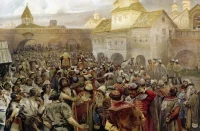Local elections were held in the UK on May 2, 2024. They became the last stage of the confrontation between the parties before the general parliamentary elections, which are due to take place on July 4. Conservative MPs consider such an early holding of general parliamentary elections to be murderous for the party, because it was possible to take more time and hold them in 2025, correcting the ratings in a year. However, Prime Minister Rishi Sunak thinks otherwise. Many parliamentarians doubt that they can keep their seats in Parliament. Today, the Labour Party is significantly ahead of the Tories in popularity: 44.5% of Britons support Labour, while about 23% support the Conservatives.\Today, the situation in the UK is extremely ambiguous. On the one hand, in order to become a deputy, it is necessary to win in one of the 650 constituencies. The struggle is not between parties, but between specific candidates, whose party affiliation has traditionally played a secondary role. After the last elections in 2019, the boundaries of the electoral districts have changed significantly. It is impossible to rely entirely on the experience of the previous elections, therefore, a lot today depends on how the conservatives will show themselves during the election campaign.
Apparently, Sunak hopes for the effect of surprise: that the Labour Party will not be able to gain enough strength in such a short period of time. To date, they have not even managed to recruit the minimum number of candidates – 100 – to participate in the elections. The need to do this in a hurry significantly increases the Conservatives’ chances of success.
Sunak is also trying to play on the positive news for himself: inflation in the country is at its lowest level in the last three years (2.3%), legal migration has decreased by 25% since the beginning of 2024. The situation may continue to change further, but the politician understands that it is not a fact that this change will take place in a favorable direction for him. Therefore, it is necessary to hurry. The attention of voters is also distracted by the elections held in the United States, which can also play into the hands of conservatives.
After this short digression, the reader is invited to consider what effect the local elections will have on the general election, in which, to put it mildly, the conservatives were not so successful.
Local elections in different regions of the UK take place at different times. Actually, on May 2 of this year, elections were held only in England, because in Northern Ireland they were held in 2023, and in Wales and Scotland – in 2022. 2,600 councillors in 107 local authorities and police commissioners, whose main function is to supervise the work of law enforcement agencies, were drawn. Mayors of 11 cities were also elected: London, Manchester, Birmingham, Bristol, Liverpool, etc. Also on this day, by-elections were held to the House of Commons in the Blackpool South constituency. The Tories hoped that the conditions in which the elections were held would play into their hands. Back under Boris Johnson, a majority system of relative majority was introduced with the need to show an identity card when voting at a polling station. However, this did not have a significant impact on the final outcome of the electoral process.
In the last few decades, the following trend has been characteristic of the UK: the loyalty of the electorate has become changeable, like a weather vane on a windy day. There are many times more vacillating personalities, and the commitment to any one political course has come to naught. The volatility of voting has increased significantly, as shown by the 2019 general election. The Conservatives owed their discouraging victory not so much to Boris Johnson and his slogan “Get Brexit done!” as to the voter’s unwillingness to see too left-wing J.P. as their prime minister Jeremy Corbyn.
However, the Conservatives lost the last local elections. It is difficult to draw any analogy between local and general elections, since local issues are on the agenda in local elections, and voter turnout rarely exceeds 40%. The loss of the ruling party in local elections in the UK is not such a rare phenomenon: voters punish their rulers for mistakes in foreign and domestic policy. In general elections, global, not local problems are solved. Therefore, as a rule, voters return to choosing those parties to which they traditionally show political preference.
It should be emphasized that the Conservatives’ loss was well deserved. Various investigations into the abuse of office by Conservative politicians during the COVID-19 pandemic took place under an unrelenting barrage of criticism. A major scandal was caused by the actions of British officials who repeatedly held private parties during the general lockdown. But the main thing was not that, but the fact that the head of government lied to Parliament, saying that there were no parties in sight. If people were still ready to forgive a wrongdoing, then never a lie. As a result, it played a cruel joke on Prime Minister Johnson. He dug himself a hole in which he was buried by representatives of his own party and political opponents. There was also a whole galaxy of violations on his part, which we will consider in more detail in the next part of the article.















Comments